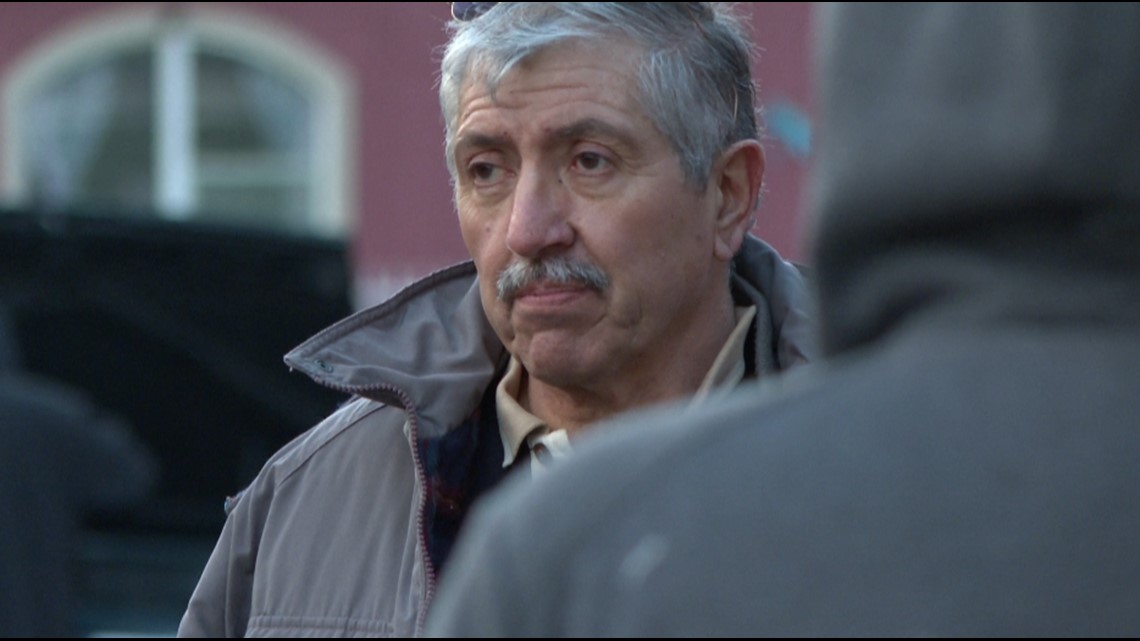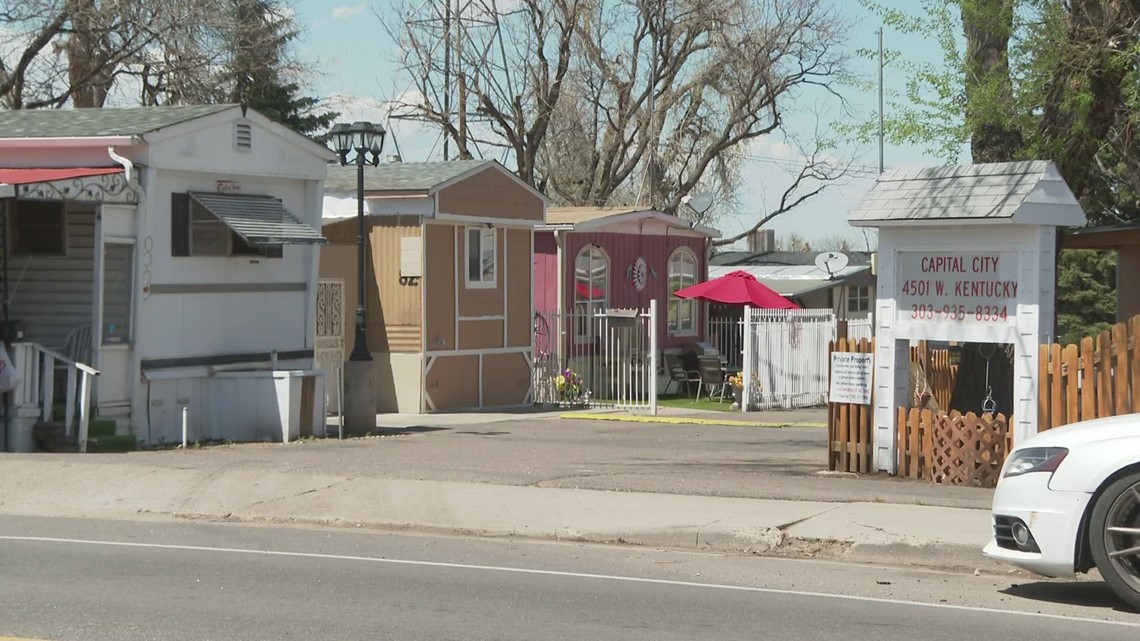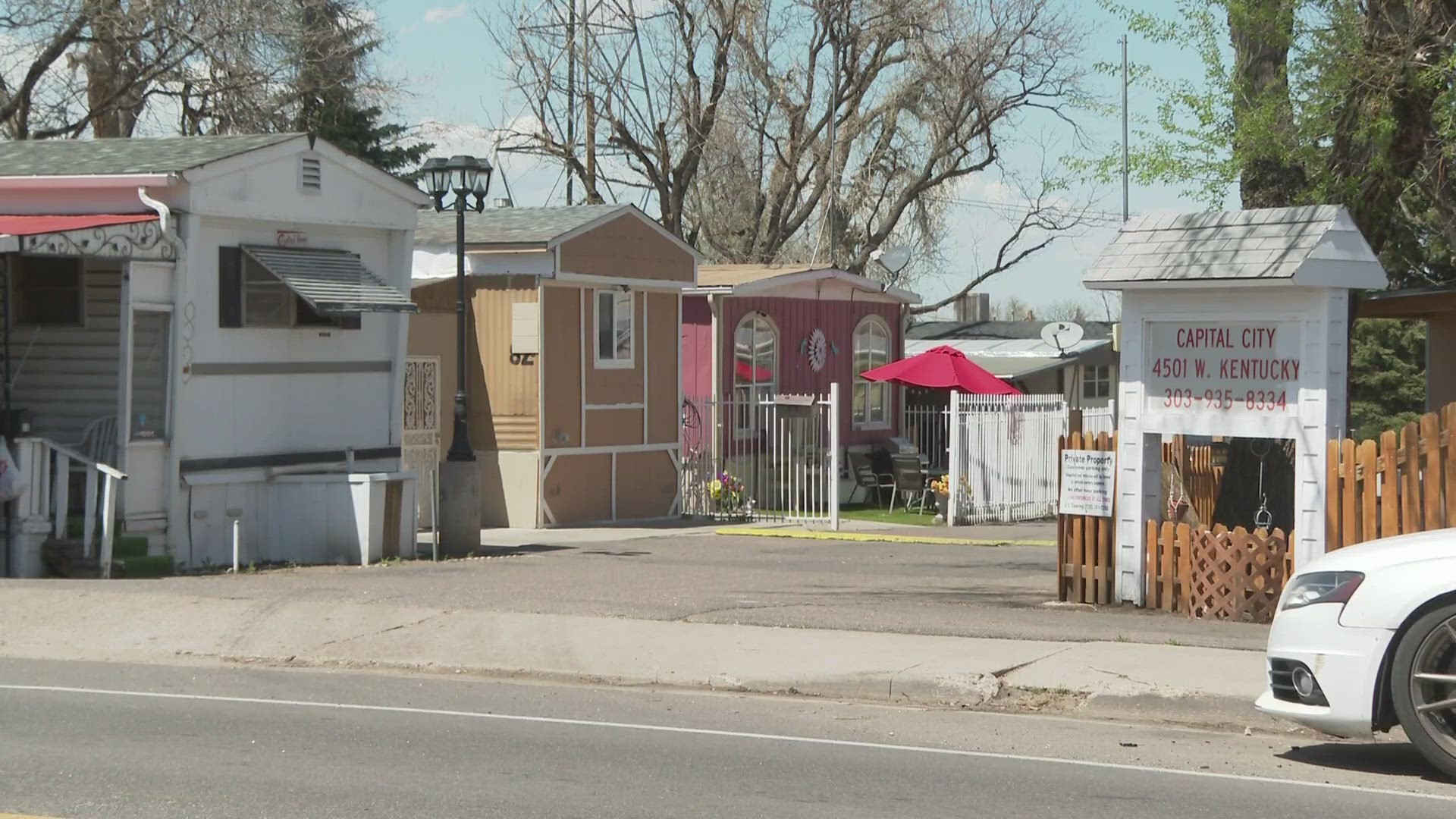DENVER — Capitol City Mobile Home Park in Westwood is up for sale, again, putting 76 families at-risk for losing their homes.
Neighbors are taking a stand, working towards creating a co-op or land trust that would put ownership of the land where they live in the hands of residents.
There's only five mobile home parks left in Denver. The threat of redevelopment and gentrification worries residents, who could be displaced with little to no affordable relocation options.
"Right now, we really see three options," said Andrea Chiriboga-Flor, project director at 9to5 Colorado. "Either the residents buy it, a developer buys it, or a private equity company would buy it."
Residents are hopeful they can purchase their park.
But, they still need to raise $11.5 million to buy it before someone else does.
"Having community own their own land and housing is really the vision," said Chiriboga-Flor. "Residents living in this park are working class families. [There's] a lot of families with young children who go to school nearby. A lot of the residents work nearby and really contribute to the economy and the social fabric of the Westwood community."
Some people in the community have been living there for 60 years. Eduardo Castañeda has lived there 16 years.
"We are a community that will not disappear," said Castañeda, a resident helping to lead the co-op effort. "We are a community that will keep moving forward within the future of Denver."


He said he refuses to give up on preserving and protecting his community.
"We, the community, are organized," he said. "We just need the financial support from the non-profits."
On April 19th, residents received a 120 day notice from the owner of the park. It's essentially a warning, letting them know someone else intends to buy it.
"The clock has officially started ticking for residents," Chiriboga-Flor said. "The landlord has to be transparent about any offers coming in, if they’ve signed a letter of intent, which he has with another potential buyer."
She said this means residents have four months to take action. They need to get 51% of residents on board to purchase the park themselves and to make a competitive offer.
"At the 120 day mark... the landlord actually has to give residents another 120 days to come up with the rest of the financing," Chiriboga-Flor said.
The 120 day notice was made possible by a state law introduced in 2020. It gives home owners in a mobile home park the opportunity to make an offer to buy the park if the landlord wants to sell or change the use of the land.
Chiriboga-Flor said the landlord of this mobile home park has said before that he wishes to sell to residents.
"It’s very unique, rare to find a mobile home park owner who wants to work with residents," she said. "A lot of times they’re willing to sell to a private equity company that can usually pay in cash or sell to a developer, and so we’re really lucky and happy that the park owner’s still on board."


She said they already have resident majority support to create the co-op, and now just need to secure a funder.
"Fundraising $11.5 million is no small feat," Chiriboga-Flor said.
The park originally went up for sale in July 2022.
Residents began working with Resident Owned Communities (ROC) USA who was going to help fund the purchase of the park.
In March, ROC USA pulled out of the contract, worried about building and zoning codes.
"Even though the city did pass a zoning code change that basically allows for the replacement of mobile homes, which is essential if we want to continue to have a mobile home park in the long-term, there still is building code that has very specific set backs in terms of how far apart homes can be," Chiriboga-Flor said.
She said ROC USA saw this as too much of a risk and ended up backing out of the deal.
"The good thing is residents still wanted to continue to fight and organize and there are funders who are interested," Chiriboga-Flor said.
She said they're in talks with other national funders who specifically want to help support grassroots, community ownership models.
Residents can also apply for up to $5 million through Denver's HOST program.
"Funders don’t usually just do things for the sake of doing things. It’s because they’ve seen this model work," Chiriboga-Flor said. "They’ve seen residents fight against their landlord, fight for their land, fight for the housing and so a lot more funders are trying to support that type of housing movement."
Back in November, Denver City Council passed an 18-month moratorium on redeveloping mobile home parks.
"That was a really big step because that does give us enough time to pass other policies that could help protect the future of mobile home parks," Chiriboga-Flor said.
Then in March, city council changed a zoning code that now allows for mobile homes to be replaced.
Chiriboga-Flor and Castañeda said these policy-changes add layers of protection to mobile home parks.
"Taking land and housing off the speculative market forever is really the only way to create affordable, permanent, sustainable housing in a long-term way," Chiriboga-Flor said. "This is historical. It's setting a precedent for other cities, other states."
They hope their movement and other successful communities like it, can help create more affordable, sustainable housing in Colorado.
"We want to continue being a part of this history for the county and for the community of Westwood, for the State of Colorado," Castañeda said.
NOTE: Quotes from Eduardo Castañeda were translated from Spanish to English.
SUGGESTED VIDEOS: Latest from 9NEWS

